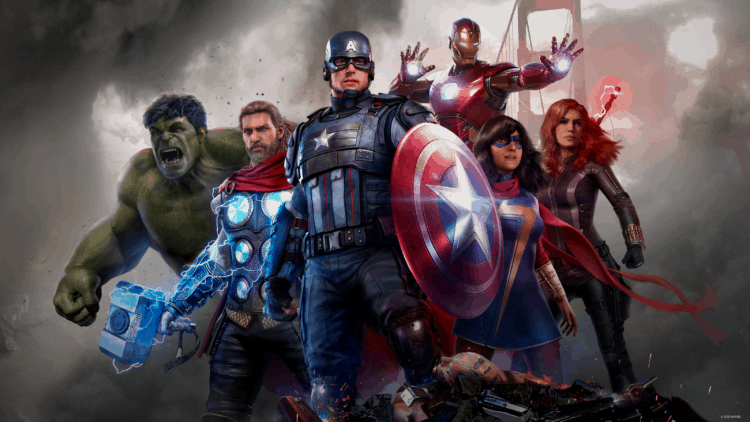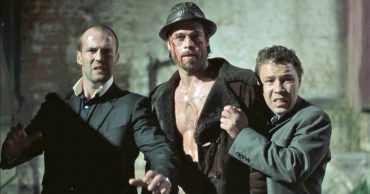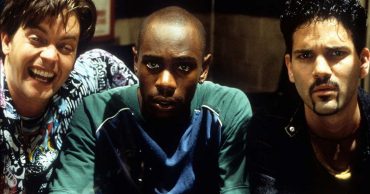
Since movies started in the late 1800s, there have been countless of trends and eras that have come and gone in Hollywood. There’s the Silent Era, which dominated 1911 to 1926. Following the transition to sound, Westerns were the hot genre through the 1930s till 1960. Or the era of black films, traditionally known as film noir during the 1940s and 50s. Now, we’re living in the age of superhero movies which started in the early 2000s and has continued to go strong thanks due to the massive success of Kevin Feige’s Marvel Cinematic Universe. Avengers: Infinity War and Endgame made over $4 billion worldwide. Black Panther has garnered over $1 billion worldwide. Captain America: Civil War, Aquaman, Spider-Man: Far From Home, The Dark Knight Rises is also in the billion-dollar club. The superhero genre is clearly a lucrative business and these types of movies will continue to dominate the landscape until audiences stop seeing these types of films. However, the rise of the superhero genre has made it difficult for original movies to be greenlight. Granted, films were hard enough to be greenlit in Tinseltown before the age of superheroes, but it’s rare that you hear about big-budget features that aren’t based on intellectual property. For five to six years, Martin Scorsese – the man who made classics such as Taxi Driver, Goodfellas, The Departed – struggled to get financing for The Irishman. Netflix was the only studio that was willing to give him $150 million for the gangster pic. Movies like Titanic, Avatar, or Terminator are original properties that someone took a chance on; however, the key thing is that James Cameron has proven that his films are box office draws. Why am I detailing the struggles filmmakers go through in financing? To help you understand why Martin Scorsese or other filmmakers would say superhero films aren’t cinema.
The famed director made that infamous statement during his interview with Empire magazine back in 2019, “I tried, you know?” When questioned on whether he’s seen Marvel’s movies. “But’s that’s not cinema. Honestly, the closest I can think of them, as well made as they are, with actors doing the best they can under the circumstances, is theme parks. It isn’t the cinema of human beings trying to convey emotional, psychological experiences to another human being.” To be clear, The Oscar winner has never stated that his lack of funding was the reason he loathed superhero movies, but I do feel that part of Scorsese’s disdain for the Marvel movies is due to the fact that he’s been struggling to financial his recent set of movies. Recently, Ridley Scott came out and branded superhero films as “boring as s**t”, and basically echoed most of Martin Scorsese’s sentiment about the lack of human connection that these types of films produce. So, to circle back around to the question of this article, are superhero films cinema? First, the notion that superhero films don’t convey emotional and psychological experiences is completely wrong.
Let’s ignore Spider-Man 2 and The Dark Knight as these shots are mostly directed at Marvel movies. Are there mindless action driven comic book films? Yes, but for the most part, the reason that the Marvel Cinematic Universe is able to connect so well with audience is due to the fact that most of their characters are relatable. Yes, these men and women possess incredible strength and insane supernatural powers, but Marvel films tend to examine the psychology behind the humans who dawn capes. Captain America is about a man who’s believes in fairness and justice, but his morals are consistently challenged. His emotional battle against his friend Bucky in Winter Solider or Tony Stark in Civil War was based off the human relationships and experience he’s dealt within the world of Marvel. Another great example is Tony Stark, who was an arrogant, but genius tech playboy. Stark’s character grows and evolves as the Marvel cinematic universe goes deeper until his ultimate sacrifice in Avengers Endgame. Audiences weren’t openly sobbing because it was Ironman that died. Fans were crying because they connected with Robert Downy Jr’s character because he felt like a human being, not some emotional robot in an iron suit. This article isn’t met to say that Ridley Scott and Martin Scorsese need to retract their statements. Films are subjective and they have the right to feel the way they do about comic book movies. However, saying that superhero films aren’t cinema is complete B.S. These theories about what cinema should be are correct, but this statement should be made for the mindless Youtube or TikTok videos. The director, the screenwriter, the actors, and anyone on these films try to put the ultimate human experience that fans try to connect to. Are superhero movies like rollercoaster rides? Yeah, but the notion that superhero films aren’t cinema should be put to rest when they perfectly fit the qualifications on what movies should be.Spider-Man: Far From Home
 Follow Us
Follow Us





